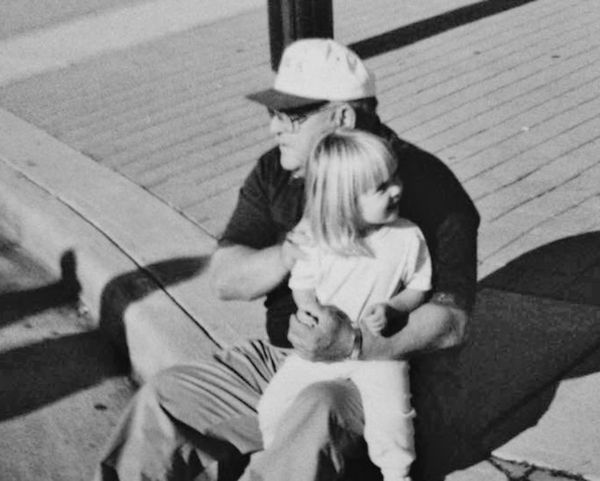Death recently showed up uninvited and took away one of the most influential men in my boyfriend's life: his grandfather. Beloved husband, father, grandfather, and soon-to-be great grandfather, he was an admired member of the community and will be greatly missed. During my boyfriend and his family's time of grief, I feel it was important to mention a few things to do (and not to do) to help and show support for anyone who has suffered and\or is suffering a loss of a loved one.
1. Send condolences
The right thing to do is to immediately send condolences to the person in mourning. It doesn't matter how you approach the matter: just let them know you are sorry for their loss. I've been told it gets tedious and even frustrating to receive so many apologies. Even as annoying as it is constantly hear apologies, it's rude not to acknowledge their loss. Show the person that you care and don't hold off sending your condolences. You don't have to have a close relationship with them in order to let them know either. It can be a brief phone call, text message, sympathy card, attending their wake\funeral, etc. Every minuscule sign of support goes a long way.
2. Listen
If you are usually a talker more than a listener, you should consider changing your ways temporarily for this person's sake (although you should have a healthy balance between talking and listening in any relationship!). They probably have a lot of feelings bottled up from losing their loved one, so open your ears and offer comfort when (and if) they open up to you.3. Don't avoid saying their loved one's name
Although this may seem like the politest thing to do, it actually brings them more pain just by avoiding the subject. It reminds them that they are in mourning and invites all the negative feelings to settle in. Address the deceased by their names, and don't hesitate to say their name either. Don't feel as if you have to walk on egg shells when you are around them, but also remember not to lose all sensitivity towards their situation. Nothing is worse than being too insensitive during a person's time of grief. (This may vary with each person. If they seem uncomfortable with this, I apologize and please disregard).
4. Offer support and help (even if they don't need\want it)
"Do you need anything?" or "Is there anything I can do to help?" are the most basic questions you should ask a person in mourning. If they take up your offer, do everything in your power to alleviate whatever it is they need help with. It could be anything from cooking meals, to cleaning, to shopping for them. If not, make sure they know that you are always around if they change their mind. Don't force your help onto them either; if they need your help, they will come forward and ask you.
5. Let them grieve on their own terms
Every person is different and will do things at their own pace, including grieving. One person could accept their loved one's death quicker than the next; another might need to seek counseling to help them move on. It is thoughtful to give advice as to how to stay healthy while grieving, but it is sometimes best to let the person go through the grieving process on their own. Don't force your advice on them; rather, offer it when asked\ needed, and leave it to them to decide whether or not to follow your advice.
6. Be their shoulder to cry on
It's a tough and heartbreaking position for you to be in, but this person will most likely have a lot of emotions bottled up. Be prepared to comfort them when (and if) they shed tears. Reiterating from #5, everyone deals with the grieving process differently, and not everyone cries to show they are saddened by something. But if the person does cry in front of you, don't ever tell them to stop crying. Let them let all their emotions out if they need to.7. Make plans to go out with them
In an effort to make my boyfriend feel some normalcy before the funeral process started, I offered to take him to go see a movie. A good distraction can have a positive effect on a person, and it will create a good memory during a bad time in their life. Get them out of the house by arranging a day or night out. Go shopping, see a movie, go out to eat, take a walk, go for a drive, etc. As long as you get them to crack a smile and to stop thinking about being sad for a little bit, it is worth every minute of it.
8. Respect their privacy
Grieving a death is, no doubt, a difficult and a terrible thing to go through. The person and their family will need all the support they can get. But also keep in mind that it is a deeply personal time in a person's life and to respect their boundaries. Do all you can without invading their privacy. Respect that they most likely will need to be with their family and let them be together to mourn for as long as they need to. Also, try not to get too offended if they push you away temporarily. They will come back around eventually; they need their privacy now more than ever.
Saying goodbye to a loved one is an excruciatingly miserable thing to do. Watching my boyfriend and his family suffer through this recent loss was dreadful, and I can't imagine all the different emotions traveling between them all. If you encounter someone who is mourning a loss, these ideas and thoughts could come in handy if you are stuck finding a way to properly support them.























